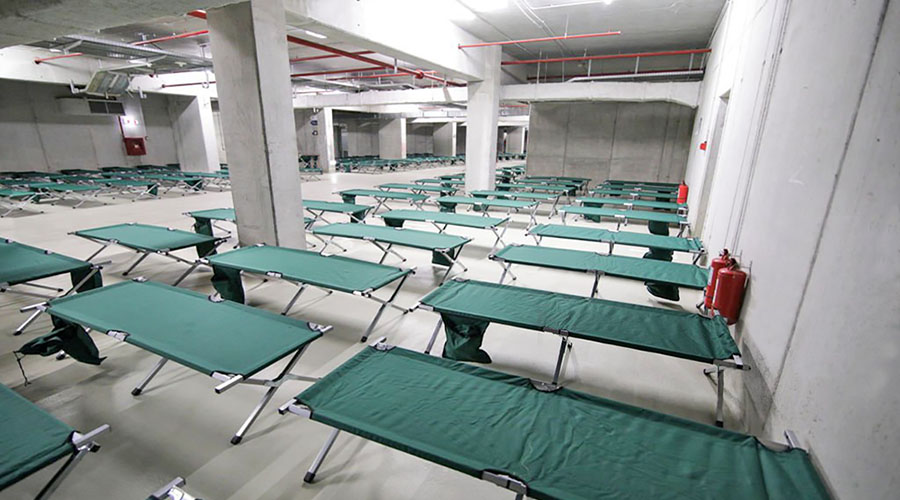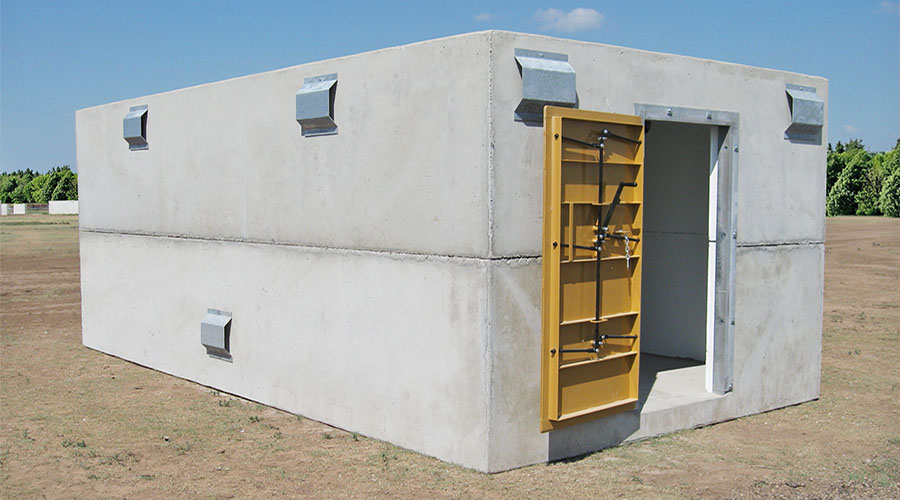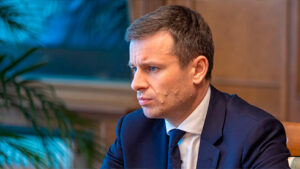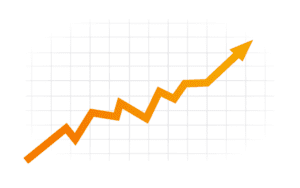
The full-scale invasion radically changed the geography and size of the construction market, caused personnel changes, influenced the legislation and also opened up new business segments for Ukrainian construction companies.
Rauta director Andriy Ozeychuk told about trends and changes in construction during 2022-2023.
To date, total amount of losses is more than $150 billion, including the largest losses suffered by the housing stock ($56 billion), infrastructure ($37 billion) and industry ($12 billion). During the two years of the full-scale invasion, about 15% of the production facilities of construction materials were destroyed. At the same time, the segments of rolled steel and dry gypsum mixtures experienced the greatest losses.

Demand
In 2022, the size of the Ukrainian construction market decreased by approximately 65%. In 2023, there is a tendency to consumption growth of construction products and services, and according to the yearly forecasts, the market is expected to increase by 20%. At the same time, the size of the residential real estate market in hryvnia equivalent will remain at the level as it was last year, non-residential construction will grow by 15%, and infrastructure will show an increase of 40%.
The demand structure for new residential real estate in Ukraine has changed dramatically. Front-line regions experienced the biggest drop in construction market to almost 90%, the central part – a decrease up to 70%, and in the west, construction increased by 15%, which is associated with the relocation of businesses and internally displaced persons, as well as the active development of real estate resorts in the Carpathians.
The primary real estate market was reoriented mainly to the west of Ukraine. Developers in other regions are mostly focused on finishing current projects, which were started before March 2022. Currently, most investors do not dare to start new construction projects and take a wait-and-see attitude.
In the Centeral, Northen and Eastern Ukraine, the demand for the reconstruction services of destroyed buildings and structures has significantly increased. A business that has suffered the destruction of real estate needs the reconstruction of buildings in order to resume functioning.
Currently the fastest-growing construction segments are the infrastructure reconstruction, primarily bridges and social buildings, at the expense of state budget and donor funds.
In response to wartime threats, new segments of the construction market appeared: structures for the protection of critical infrastructure facilities and modular reinforced concrete shelters designed to protect people during air raids, artillery fire, etc.

Prices
In 2022-2023, the cost of construction increased by 53%, which led to a similar price increase for the primary real estate market. The construction cost price will continue to grow, which is determined by objective processes, including increased demand and inflation.
Import reorientation
Suppliers of construction materials, which previously imported products from the russia and belarus (glass, bitumen, rolled steel, cement, sandwich panels, etc.), were forced to reorient themselves to supply goods from EU countries and Turkey.
Due to the closure of Ukrainian ports, the import of construction materials by sea (rolled steel, chemicals, decoration materials, etc.) became impossible. Today, the import of these materials to Ukraine takes place mainly through Romania, which has led to an increase in their cost.
At the end of 2023, complications arose with the import of raw materials and construction materials due to blocking by Polish and Slovak carriers of checkpoints on the border with Ukraine. It also caused an increase in prices and delivery times of imported construction materials.

Personnel
During the full-scale invasion, the reduction in the number of the working population of Ukraine amounted to about 35%. The mobilization and emigration of qualified specialists caused a shortage of personnel in the construction industry, which is felt even against the background of a significant market decrease. In the future, this may lead to an increase in wages, which will further increase the cost of construction, but still it will not solve the problem of the lack of qualified personnel.
In this regard, rapid construction technologies, which require a minimum number of workers, are becoming more and more popular. For example, the construction of buildings from sandwich panels requires much smaller number of specialists than in case of installing building from small pieces of materials.
During reconstruction, Ukraine will need a large number of construction specialists, therefore, in the future, we are likely to expect labor migration of qualified personnel from the EU and labor specialties from Asia.

Legislation
Among the main legislative innovations in recent years, there is a notable trend to improve people’s safety and improve the energy efficiency of buildings. Thus, the adoption of amendments to Law No. 2486-IX regulates the requirements for the arrangement of bomb shelters during the construction of new buildings. Also, DBN B.2.6-31:2021 changed the requirements for the minimum permissible values of the reduced heat transfer resistance of the envelope structures of buildings, which increased by an average of 28%.
Preparation for reconstruction
Currently, most Ukrainian investors are preparing for reconstruction and are actively calculating the cost of construction, but as a rule they are waiting for the end of hostilities to start new projects.
International financial institutions are also planning to get involved in reconstruction and are gradually entering the Ukrainian market. The key criteria for financing post-war construction in Ukraine will be transparency and speed of project implementation, so international organizations are already starting to establish partnerships with reliable Ukrainian construction companies. At the same time, priority is given to companies that work with European materials and technologies, which allows to create modern architecturally attractive and energy-efficient buildings.

Ukraine’s unfunded needs for financing priority reconstruction this year amount to about $6.5 billion more, with a total estimate of $14.1 billion, Finance Minister Sergei Marchenko said in panel discussions at a meeting of the IMF and World Bank member countries in Montenegro.
“Timely attraction of these funds is crucial for creating proper living conditions for people, returning migrants and promoting economic growth in Ukraine,” the minister said in a Finance Ministry press release on Friday.
According to him, the state budget-2023 provides $3.3 billion for priority reconstruction, and international partners have provided guarantees of about $4.3 billion.
Marchenko recalled that the needs of the energy sector for priority reconstruction are estimated at $3.3 billion, humanitarian demining at $400 million, reconstruction of destroyed and damaged housing at $1.9 billion, critical and social infrastructure at $5.8 billion, as well as $2.8 billion needed to support the private sector.
It is noted that during the discussions the state of the economy in the countries receiving migrants and refugees was discussed, and the head of the Ministry of Finance thanked the governments of the receiving countries for their assistance and protection.
According to him, the factor of Ukrainian migrants has a positive impact on the economies of receiving countries, as Ukrainians spend money and actively integrate into the European labor market.
At the same time, Marchenko noted the priority of the Ukrainian government to create incentives for citizens to return home, and in this context it is important to rebuild the country.
The minister also informed that the governments of Ukraine and Great Britain are closely cooperating on the organization of a conference on the reconstruction of Ukraine, which will be held in late June in London:
“We plan to present reconstruction projects, as well as to discuss mechanisms of insurance against military risks. I am confident that the conference will consolidate international partners and donors and will facilitate their involvement in Ukraine’s reconstruction,” the Finance Minister said.

Ukraine may need up to EUR1 trillion in foreign aid to repair the damage caused by the Russian invasion, Bloomberg reports the words of the head of the European Investment Bank, Werner Hoyer, at a press conference in Frankfurt on Tuesday.
“I put (estimate) a trillion because I saw numbers in the public space that I consider completely unrealistic when I see the level of destruction in Ukraine,” Hoyer said.
In his opinion, Europe will have to play the biggest role in these efforts.
The head of the EIB also said that he is currently trying to redistribute the bank’s liabilities in the amount of EUR1 to EUR1.5 billion to restore Ukraine. According to him, the corresponding approval can be obtained as early as this week.
Prime Minister of Ukraine Denys Shmygal, in an interview with Interfax-Ukraine at the end of March, also said that Ukraine’s losses from Russia’s full-scale military aggression, taking into account both the destruction already inflicted on infrastructure and the economy, and future losses in subsequent years, exceed $1 trillion.
According to him, its first component is direct infrastructure damage, which at that time was estimated at about $120 billion, and taking into account military infrastructure and other civilian expenses, more than $270 billion.
The prime minister added that the second component is the calculation of the losses of the Ukrainian economy: the fall in GDP during the war, lost profits and investments – more than $ 290 billion, and the third – the losses received by the state as a result of a decrease in GDP in the future.
According to the State Statistics Service, in 2021, Ukraine’s GDP grew by 3.4% after a 3.8% decline in 2020, its nominal volume amounted to about $200 billion. This year, the fall in GDP is predicted by various experts in the range of 30-45%.

The indicator of economic sentiment in Ukraine, calculated by the State Statistics Service, in the fourth quarter of 2021 increased to 98.7% from 98.5% in the third quarter, from 96.9% in the second and from 90.2% in the first quarter of this year.
According to the State Statistics Service, the indicator of business confidence in retail trade – the only one of five in the area of positive values – deteriorated from 6.8% to 4.3% in the third quarter.
At the same time, the values of other indicators of business confidence improved, albeit slightly: in construction to minus 22.4% from minus 23.6%, in the service sector – to minus 10.8% from minus 12.8%, in processing industry – to minus 6.4% from minus 7.5%.
The consumer confidence indicator rose to minus 21.1% from minus 21.2% in the third quarter.
As reported, the calculation of the economic sentiment indicator was first started in the first quarter of 2017. The index reached a record high level of 110.9% in the fourth quarter of 2019, however, since the onset of the coronavirus crisis in the world, it first dropped to 108.4%, and then collapsed to a record low of 73.3%.
The agency indicated that the indicator was calculated in accordance with the methodology for calculating indicators of business expectations in accordance with the requirements of the expanded Special Data Dissemination Standard of the International Monetary Fund, updated by the State Statistics Service in December 2017.
Business confidence indicators, by sector, are assessed based on surveys on the current level of orders and finished goods inventory, changes in sales volumes over the past three months, forecast of changes in production/sales volumes and the number of employees in the next three months.
The largest contribution in the economic sentiment indicator definition is the contribution of the indicator of business confidence in industry – 40%, followed by the service sector – 30%, construction with retail trade – 5% each. The weight of consumer sentiment is 20%.